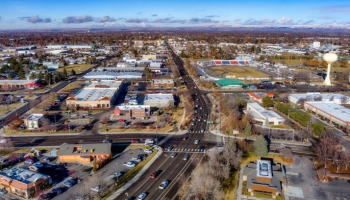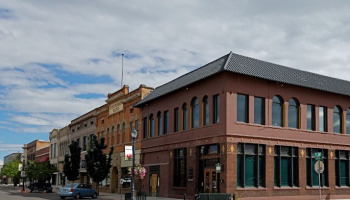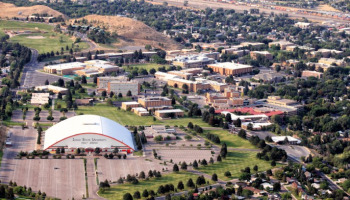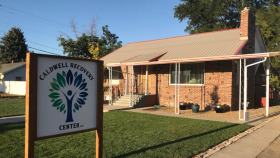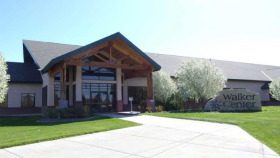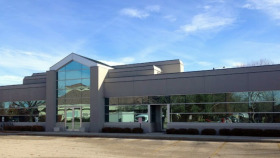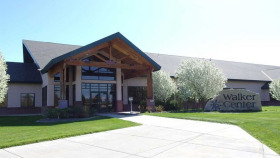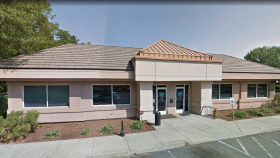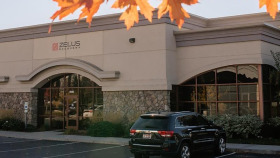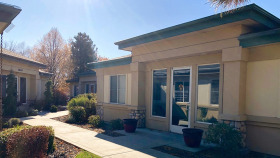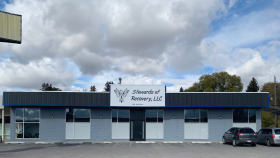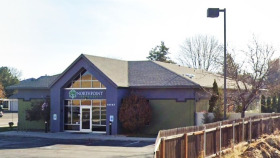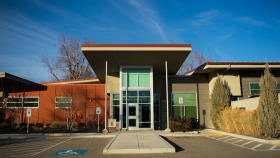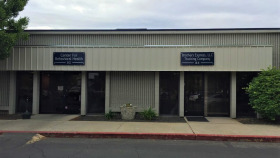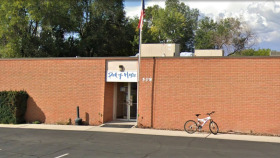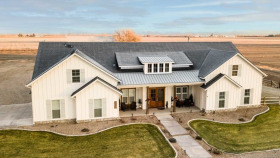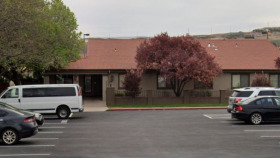Expert Insights
As a pediatric nurse practitioner, I’ve seen how drug use can cause children to shoulder emotional burdens far beyond their years.
These moments remind me that addiction isn’t isolated. It casts a long shadow over every aspect of a family’s life. Identifying warning signs and advocating for wraparound services helps families get help.
Idaho isn’t immune to the effects of addiction on its residents and families. According to the CDC, there were 385 drug overdose deaths in Idaho in 2022, which is 20.7 deaths per 100,000 people. Although this was lower than the overall overdose death rate in the U.S., it was also the highest death rate since the state began collecting data in 1999, when it was 5.3 per 100,000.
~Gayle Morris, BSN, MSN
How Much Does Drug Rehab in Idaho Cost?
Idaho is ranked 1st nationwide in terms of addiction treatment affordability, with an average cost of addiction treatment of $42,195
- Medical detox is the most expensive, with an average cost of $104,026
- Inpatient rehab in Idaho costs an average of $37,234
- Outpatient rehab in Idaho costs and average of $6,187
- Outpatient methadone treatment is the most affordable, with an average cost of $5,497
Your costs for addiction treatment will depend on a lot of factors. Your out-of-pocket costs will be determined based on several criteria, including:
Whether you choose an inpatient or outpatient program
The type of amenities and features
The duration of your treatment
If the facility takes your insurance plan
Where the facility is located
Choosing inpatient or residential rehab will come with higher costs. You will live in the facility for the entire duration of your care. Your costs will include housing, meals, therapy, and any medical care you need. If you choose a facility with luxury add-ons, your costs will go up.
If cost is a barrier to getting care, you can find free, low-cost, or sliding-scale programs in Idaho. You can ask a treatment center if it has structured payment plans. This will allow you to spread payments out over time. Some facilities have a sliding scale for costs and set your expenses based on your income level.
How to Pay for Rehab in Idaho
As of 2024, there were over 120 rehab facilities across the state of Idaho. These facilities accept several payment methods. Of those facilities, the following numbers reflect how many accept their respective payment methods:
The first hurdle to drug and alcohol addiction treatment is being able to pay for addiction treatment centers that address substance abuse and alcohol rehab. While the cost may seem overwhelming, the long-term expenses associated with drug and alcohol addiction are even greater. Consider these methods of reducing your financial burden and increasing your potential for achieving sobriety and sustainable recovery.
Private pay + Insurance
Most health insurance policies offer some coverage for substance abuse and mental health treatment. Two federal laws provide some protection and mandate insurance providers offer coverage. However, there are also exceptions. The two federal laws include the 2008 Mental Health Parity and Addiction Equity Act and the 2010 Affordable Care Act.
Some individuals choose private pay options so their treatment remains confidential and their insurance provider, and possibly their employer, is not aware they received treatment. The following are some of the major insurance providers that offer coverage in Idaho.
- Advanced Benefits
- Bingham Health Care
- Blue Cross of Idaho
- Castle Lake Insurance
- Dirks Insurance Group
- Farm Bureau Mutual Insurance Company of Idaho
- Moda Health Plan
- Mountain Health Cooperative
- Molina Health Care
- Mustard Seed Financial and Insurance
- Mutual Insurance
- PacificSource Health Plans of Idaho
- Regence BlueShield of Idaho
- SelectHealth
Medicaid
Medicaid is a free or low-cost insurance option for adults with a variety of health needs and who meet eligibility requirements. These requirements typically include low income, citizenship, a current social security number, and state residency. Some pregnant women, children, and individuals receiving Supplemental Security Income are also eligible for Medicaid.
Medicaid is a collaborative program between state and federal agencies. However, Idaho administers Medicaid, including specific programs for adults or workers with disabilities, nursing home coverage, and long-term care coverage. Individuals with health problems who require assistance with daily living tasks may also qualify for personal care services in Idaho.
Medicare
Medicare is a government funded health insurance plan that provides coverage for people over age 65 and those younger with certain health conditions. Medicare covers substance abuse treatment under original Medicare Parts A and B. Medicare Advantage is a premium based managed insurance plan that combines coverage for Medicare Parts A and B and offers additional services.
The Idaho Department of Health and Welfare offers several different ways of accessing substance abuse disorder treatment. Payment depends on your eligibility and your financial situation. Some people are eligible for Medicaid and Medicare, which helps reduce expenses. Magellan of Idaho manages the substance use disorder treatment network so you can access recovery services when you need them.
Military insurance
The military offers treatment for substance use disorders, including alcohol, tobacco, and street drug addiction. Many veterans have challenges with substance abuse and the Veterans Administration provides several treatment options. TRICARE is the healthcare insurance plan from the U.S. Military that provides coverage for active duty and former service members and their families.
TRICARE insurance policies cover inpatient and outpatient care, detoxification, medication assisted treatment, and several evidence-based opioid treatment programs. VA hospitals also offer medically managed detoxification, drug substitution therapies, and nicotine replacement or other medications to help stop smoking. To access these services through VA health care, you must first apply as a veteran or service member.
Tribal funding and programs
The Indian Health Services is a Federal health program for American Indians and Alaskan natives which has an alcohol and substance abuse branch whose aim is to reduce the prevalence and incidence of addiction to a level at or below the general U.S. population.
There are 38 Idaho grants for substance abuse treatment and prevention available to help improve and monitor care. The Tribal Health and Human Services oversees 11 grant programs that provide care throughout Idaho to the Shoshone-Bannock tribes. They are the only Indian Nation jointly accredited through AAAHC with the local Indian Health Service unit.
Other low-cost options
You can pursue other low cost options to help ease your financial burden to pay for drug and alcohol addiction treatment. The options available to you will vary between addiction treatment centers or drug and alcohol rehabs.
The most immediate way to receive care is a personal loan. A bank loan can help provide immediate funds and a personal loan from friends and family allows you to customize your repayment plan and typically does not have the interest rate charged by the bank.
The cost of drug rehabs varies widely depending on several factors. Some programs offer sliding scale fees that adjust the cost based on your financial situation. Employee assistance programs may offer tools or financial assistance and grants and scholarships can come from state and local governments, tribal communities, and nonprofit organizations. Faith-based organizations typically offer services based on their values and beliefs. When these mesh with yours, it gives you a sense of community and they often help cover costs.
Resources
- America’s Health Rankings. (2021). Non-Medical Drug Use – Past Year In Idaho.
- Idaho Department of Health and Welfare. (2022). Medicaid.
- Medicare.gov. (2022). Mental health care (outpatient).
- NAMI. (2022). Acamprosate (Campral).
- Idaho Office of Drug Policy. (2022). Naloxone.


